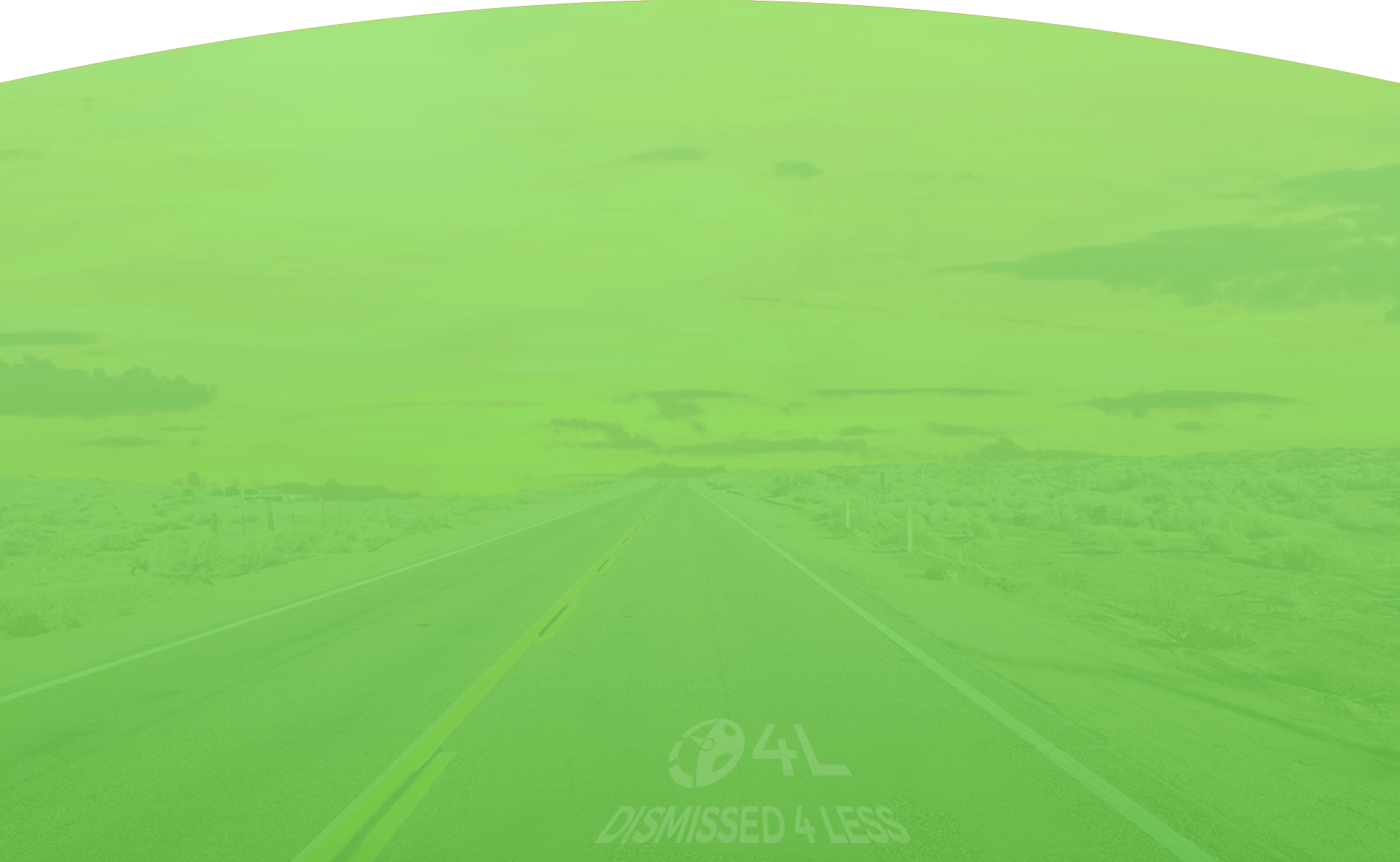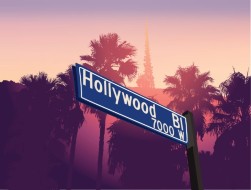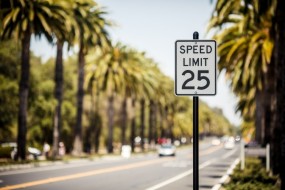General California Traffic Violations
Over four million traffic tickets are issued in California. Many drivers in California are not aware of general California traffic violations and the rule they’re supposed to follow.
The interesting thing about traffic violations is that you can get a ticket even if you are not driving. Yes, some tickets are issued to vehicles or drivers when they’re not in motion.
In this article, we’ll look at all general California traffic violations to help you have a better idea of the prevalent law so you can follow it and be a responsible citizen.
Let’s get started and cover all general California traffic violations and other California traffic ticket violations:
Reasons for Getting a Ticket in California
Let's talk about some of the most common general California traffic violations like speeding and some other California traffic ticket violations like missing equipment.
-Speeding
Vehicle Code 22350 covers this and several other general California traffic violations. It says:
“No person shall drive a vehicle upon a highway at a speed greater than is reasonable or prudent having due regard for weather, visibility, the traffic on, and the surface and width of, the highway, and in no event at a speed which endangers the safety of persons or property.”
Speeding can result in crashes and lead to injuries, financial loss, and the loss of lives. You will have to pay fines if you are caught speeding. The amount of fine depends on several factors including your speed and where you were caught.”
In most cases, you will also get a point if you are caught speeding.
-Expired Tags
California Vehicle Code 5204 covers this law. It says:
“Current month and year tabs shall be attached to the rear license plate assigned to the vehicle for the last preceding registration year in which license plates were issued, and, when so attached, the license plate with the tabs shall, for the purposes of this code, be deemed to be the license plate, except that truck tractors, and commercial motor vehicles having a declared gross vehicle weight of 10,001 pounds or more, shall display the current month and year tabs upon the front license plate assigned to the truck tractor or commercial motor vehicle. Vehicles that fail to display current month and year tabs or display expired tabs are in violation of this section.”
Getting a ticket for expired or unclear tags is not very common but it’s a possibility. This is a non-moving violation and it will not affect your insurance rate.
-Suspended License
Vehicle Code 14601.1(a) VC covers this law. In simple words, it is illegal to go behind a wheel if you do not have a valid driver's license. Here's what the law says:
“No person shall drive a motor vehicle when his or her driving privilege is suspended or revoked for any reason other than those listed in Section 14601, 14601.2, or 14601.5, if the person so driving has knowledge of the suspension or revocation. Knowledge shall be conclusively presumed if mailed notice has been given by the department to the person pursuant to Section 13106. The presumption established by this subdivision is a presumption affecting the burden of proof."
This is a misdemeanor and can result in jail time and substantial fines. The authorities will have to prove that you were 'aware' of having a suspended license. This is very important because driver’s licenses can often get suspended without the knowledge of the driver.
Some of the reasons for suspension include DUI, failure to submit to a chemical test, etc. The main defense in such cases is a lack of knowledge, i.e: not receiving a suspension notice due to an incorrect address.
-Running a Stop Light
This is one of the most common violations among all general California traffic violations.
You will have to pay a fine of about $238 if you're in violation of a light signal. It can, however, be higher based on when and where you violated the law. Plus, it will result in a point on your driving record.
Vehicle Code 21453(a) covers this section and says:
“A driver facing a steady circular red signal alone shall stop at a marked limit line…before entering the crosswalk on the near side of the intersection or, if none, then before entering the intersection, and shall remain stopped until an indication to proceed is shown.”
There are automatic sensors installed throughout the states to catch culprits.
-Failure to Come to a Complete Stop
You are supposed to come to a ‘complete stop’ when you see a stop sign. There is no limit on how long the stop needs to be but most experts suggest to come to a complete halt for at least three seconds to be on the safe side.
The California Vehicle Code 22450 VC covers this part of the law. It states:
“The driver of any vehicle approaching a stop sign at the entrance to, or within, an intersection shall stop at a limit line, if marked, otherwise before entering the crosswalk on the near side of the intersection.”
You must stop at or before the given line. The rule slightly differs if you are driving in specific zones, i.e: railway crossing or schools.
You will get a point if you are in violation of a stop sign and you may also have to pay tickets that can run up to $400 including penalties.
-Improper Equipment
Also known as a ‘fix it’ ticket, the purpose of this violation is to ensure your vehicle is safe and in the right condition before you take it out on the road because driving unsafe vehicles puts everyone at risk.
California Vehicle Code 24002 VC covers this law. It says:
“It is unlawful to operate any vehicle or combination of vehicles which is in an unsafe condition, or which is not safely loaded, and which presents an immediate safety hazard.”
Violation will result in a point and heavy fines that can run up to $300.
The law does not clearly define what’s considered ‘improper’. The determination will depend on the situation, i.e: where you're driving and at what speed.
Some examples include a missing headlight. The best way to avoid this ticket is to keep your car maintained at all times.
-Illegal U-turn
A u-turn is considered illegal when there’s a sign prohibiting it. It is not a common California traffic ticket violation.
California Vehicle Code 22100.5 covers this and several other general California traffic violations. It says:
“No driver shall make a U-turn at an intersection controlled by official traffic signals except as provided in Section 21451.”
Like many other California traffic ticket violations, this one results in a point on your driving record and fine. However, in some cases, officers can give you a warning and ask you to be more careful when you’re on the road.
-Insurance Violation
Auto insurance is mandatory in California and it is considered illegal to drive a vehicle that is not insured. It’s not only risky but it’s also highly irresponsible.
A lot of people avoid getting insurance due to how expensive it can get without realizing the downside of doing so. The failure to have insurance can result in this and other California traffic ticket violations.
VC 16029 covers this law. Failure to follow this statute can result in fines, and possible suspension. In some rare cases, you may even have to spend some time in prison.
This violation is considered an infraction and the first offense will cost you at least $100. There may be additional fees and the total charge can end up being as high as $450.
-Driving Without a License
Driving without a license is not the same as driving with a suspended or invalid driver’s license.
It's a wobbler offense that's considered both an infraction and a misdemeanor. Your penalty can vary between $250 and $1,000 depending on a number of factors including penalties.
California Vehicle Code Section 12500 VC covers this and some other California traffic ticket violations. Here’s what the law states:
(a) A person may not drive a motor vehicle upon a highway, unless the person then holds a valid driver’s license issued under this code, except those persons who are expressly exempted under this code.
(c) A person may not drive a motor vehicle in or upon any offstreet parking facility, unless the person then holds a valid driver’s license of the appropriate class or certification to operate the vehicle. As used in this subdivision, “offstreet parking facility” means any offstreet facility held open for use by the public for parking vehicles and includes any publicly owned facilities for offstreet parking, and privately owned facilities for offstreet parking where no fee is charged for the privilege to park and which are held open for the common public use of retail customers.
(d) A person may not drive a motor vehicle or combination of vehicles that is not of a type for which the person is licensed.
Whether you’re driving through states or going next door, you must have a valid driver’s license to drive a motor vehicle.
The license proves your identity and that you are eligible to drive. You might be able to get away with just a warning, which is recommended since the fine for this violation like some other California traffic ticket violations can be high.
-Driving Under the Influence
There are few general California traffic violations as serious as this one. A large number of drunk driving cases include collisions, which is why they typically result in huge losses.
California Vehicle Code Section 23152 VC covers this general California traffic violation and some other California traffic ticket violations.
Here’s what the law says:
(a) It is unlawful for a person who is under the influence of any alcoholic beverage to drive a vehicle.
(b) It is unlawful for a person who has 0.08 percent or more, by weight, of alcohol in his or her blood to drive a vehicle.
(c) It is unlawful for a person who is addicted to the use of any drug to drive a vehicle. This subdivision shall not apply to a person who is participating in a narcotic treatment program approved pursuant to Article 3 (commencing with Section 11875) of Chapter 1 of Part 3 of Division 10.5 of the Health and Safety Code.
(d) It is unlawful for a person who has 0.04 percent or more, by weight, of alcohol in his or her blood to drive a commercial motor vehicle, as defined in Section 15210. In a prosecution under this subdivision, it is a rebuttable presumption that the person had 0.04 percent or more, by weight, of alcohol in his or her blood at the time of driving the vehicle if the person had 0.04 percent or more, by weight, of alcohol in his or her blood at the time of the performance of a chemical test within three hours after the driving.
(e) Commencing July 1, 2018, it shall be unlawful for a person who has 0.04 percent or more, by weight, of alcohol in his or her blood to drive a motor vehicle when a passenger for hire is a passenger in the vehicle at the time of the offense. For purposes of this subdivision, “passenger for hire” means a passenger for whom consideration is contributed or expected as a condition of carriage in the vehicle, whether directly or indirectly flowing to the owner, operator, agent, or any other person having an interest in the vehicle. In a prosecution under this subdivision, it is a rebuttable presumption that the person had 0.04 percent or more, by weight, of alcohol in his or her blood at the time of driving the vehicle if the person had 0.04 percent or more, by weight, of alcohol in his or her blood at the time of the performance of a chemical test within three hours after the driving.
(f) It is unlawful for a person who is under the influence of any drug to drive a vehicle.
(g) It is unlawful for a person who is under the combined influence of any alcoholic beverage and drug to drive a vehicle.
The law defines the term "under the influence" as a condition "your physical or mental abilities are impaired to such a degree that you no longer have the ability to drive with the caution characteristic of a sober person of ordinary prudence under the same or similar circumstances"
Unlike some other California traffic ticket violations, you cannot talk to an officer and request to let go if you’re caught driving under the influence since it’s among the most serious general California traffic violations.
The prosecutor will have to prove the validity of the claim when the matter reaches the court.
You might end up with probation (up to five years), jail (up to one year), fine (up to $1,000), and suspension.
Can General California Traffic Violations Result in a Suspension?
Yes, your license may get suspended if it’s a serious offense or if you’ve been found violating the same law again and again.
California, like most other states, follows a points system. Each general California traffic violation will add one or more points to your record unless you reach a point where you can get your license suspended.
What Happens After I Get a Ticket?
You will have to provide details to the officer including your driver’s license, insurance proof and registration.
The officer may request to inspect your vehicle, however you are not required to allow the officer to inspect your vehicle. If you’re charged, you will get a “Notice to Appear” that will include details including your charges.
You must appear in court by the deadline and pay your charges to avoid getting into trouble.
Fighting your ticket using a Trial by Written Declaration is a much better route. In most cases an appearance is not required and a dismissal results in no points on your driving record.
Is a Parking Ticket also a General California Traffic Violation?
Yes, it is considered a violation but not as serious as some other California traffic ticket violations on this list. Since parking tickets are typically not filed with the court, you will not have to worry about having to appear in front of a judge.
You will have to pay the amount or fight the ticket if you think it is not justified. It is very important to get rid of the ticket as soon as possible as waiting longer can cause you to pay more.
Not paying your ticket can result in trouble when you go to renew your registration.
How Can I Fight a Traffic Ticket?
You will have to speak to a traffic ticket expert about fighting general California traffic violations.
The traffic ticket expert will listen to your explanation and come up with a plan. In addition to fighting the ticket, you can choose to:
- Pay the fine
- Consider traffic school
- Submit proof of correction if eligible
Whatever you decide, make sure to never make the mistake of not appearing in court if you are asked to. You will not have to appear in court for most general California traffic violations, but it might be required in some more serious cases.







